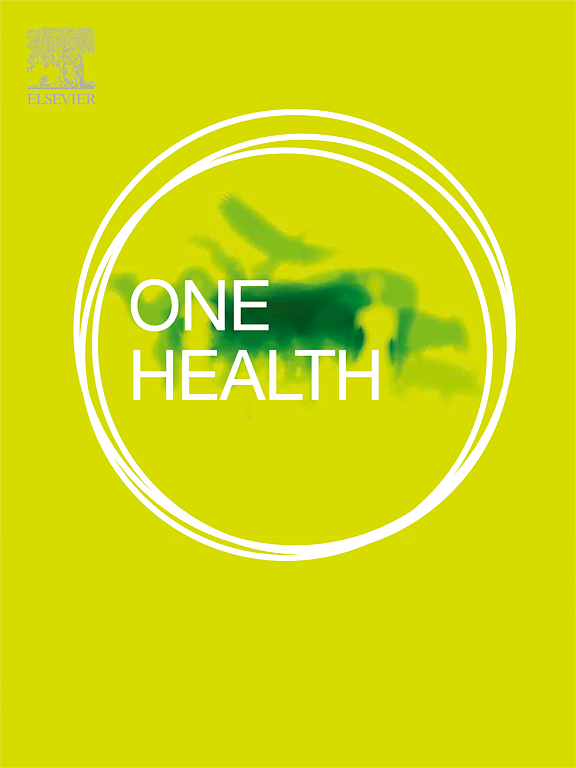Understanding stakeholder relationships and local context to build a community-based one health surveillance system in Guinea
IF 4.5
2区 医学
Q1 INFECTIOUS DISEASES
引用次数: 0
Abstract
In 2014, the Ebola virus epidemic that began in Guinea spread to several countries in sub-Saharan Africa, causing the deaths of almost 11,000 people. This crisis, caused in part by increased human contact with wildlife, was exacerbated by the lack of preparedness within the health sector of the affected countries, including inadequate surveillance of disease emergence from wildlife. Given that local communities face the greatest exposure to these issues, this study sought to acquire the contextual knowledge needed to set up community-based zoonotic disease surveillance. Field investigations based on a One Health approach were carried out at two sites in the Guéckédou prefecture in Guinea's forest region. Semi-structured individual interviews and focus group discussions were held with 87 members of the community. These interviews provided new information about zoonotic disease surveillance in Guinea, which we then used to map the health actors and their relationships within the community. We gathered details about the barriers they face and their concerns, such as the fundamental importance of training, a lack of legitimacy, and the differences in means allocated among the human, animal, environmental, health sectors. Some relatively unidentified stakeholders also emerged as possible communication channels. This study shows the importance of talking to the primary users of surveillance to ensure the acceptability and relevance of the surveillance system to the local community. Community members can clearly articulate their priority needs in a given context to ensure potential solutions align with those needs. The epidemiological context in Forest Guinea over the last 10 years makes this region an ideal laboratory for understanding how to tackle emerging infectious diseases in close cooperation with the people most affected.

了解利益攸关方关系和当地情况,以便在几内亚建立以社区为基础的单一卫生监测系统
2014年,始于几内亚的埃博拉病毒蔓延到撒哈拉以南非洲的几个国家,造成近1.1万人死亡。造成这场危机的部分原因是人类与野生动物接触增加,而受影响国家卫生部门缺乏准备,包括对野生动物出现的疾病监测不足,又加剧了这场危机。鉴于当地社区面临这些问题的风险最大,本研究试图获取建立基于社区的人畜共患疾病监测所需的背景知识。根据“同一个健康”方针,在几内亚森林地区的古萨克海姆多省的两个地点进行了实地调查。与87名社区成员进行了半结构化的个人访谈和焦点小组讨论。这些访谈提供了几内亚人畜共患疾病监测的新信息,然后我们利用这些信息绘制了卫生行为者及其在社区内的关系图。我们收集了有关他们面临的障碍和关切的细节,例如培训的根本重要性、缺乏合法性以及在人类、动物、环境和卫生部门之间分配手段的差异。一些相对身份不明的利益相关者也成为可能的沟通渠道。这项研究显示了与监控的主要用户交谈的重要性,以确保监控系统对当地社区的可接受性和相关性。社区成员可以在给定的环境中清楚地表达他们的优先需求,以确保潜在的解决方案与这些需求保持一致。森林几内亚过去10年的流行病学背景使该区域成为了解如何与受影响最严重的人密切合作应对新发传染病的理想实验室。
本文章由计算机程序翻译,如有差异,请以英文原文为准。
求助全文
约1分钟内获得全文
求助全文
来源期刊

One Health
Medicine-Infectious Diseases
CiteScore
8.10
自引率
4.00%
发文量
95
审稿时长
18 weeks
期刊介绍:
One Health - a Gold Open Access journal.
The mission of One Health is to provide a platform for rapid communication of high quality scientific knowledge on inter- and intra-species pathogen transmission, bringing together leading experts in virology, bacteriology, parasitology, mycology, vectors and vector-borne diseases, tropical health, veterinary sciences, pathology, immunology, food safety, mathematical modelling, epidemiology, public health research and emergency preparedness. As a Gold Open Access journal, a fee is payable on acceptance of the paper. Please see the Guide for Authors for more information.
Submissions to the following categories are welcome:
Virology,
Bacteriology,
Parasitology,
Mycology,
Vectors and vector-borne diseases,
Co-infections and co-morbidities,
Disease spatial surveillance,
Modelling,
Tropical Health,
Discovery,
Ecosystem Health,
Public Health.
 求助内容:
求助内容: 应助结果提醒方式:
应助结果提醒方式:


